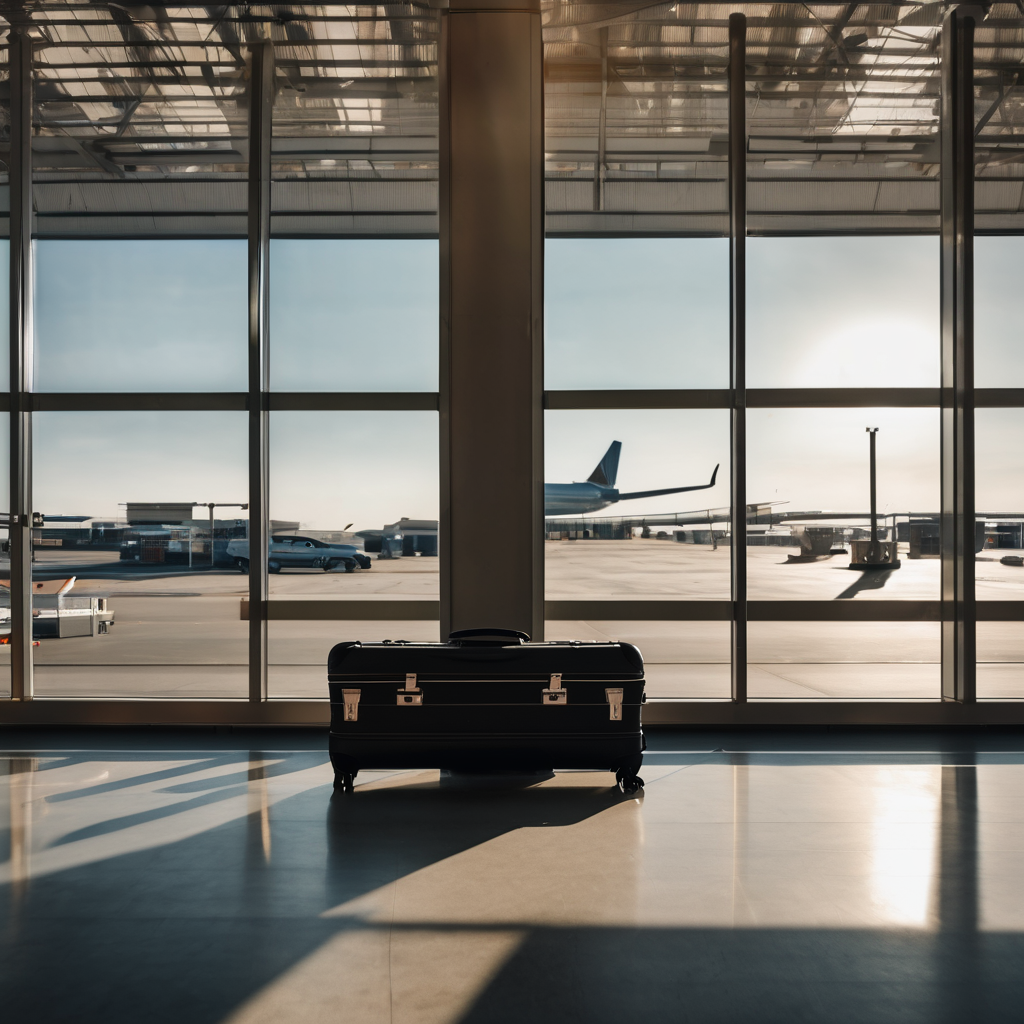Flight reductions implemented by the Trump administration entered their fifth day on Tuesday, as airlines cautioned that travel schedules would take time to normalize despite the recent agreement to reopen the federal government. The Senate successfully passed a deal to conclude the longest government shutdown in history, which is now awaiting approval from House lawmakers expected to vote on it this week.
In light of Monday’s developments, Airlines for America, representing major carriers like American Airlines, Delta, Southwest, and United, expressed hope that legislators would act promptly. However, the association warned that disruptions would linger even after the government reopens. “Airlines’ reduced flight schedules cannot immediately bounce back to full capacity right after the government reopens. It will take time, and there will be residual effects for days,” a statement from the trade group indicated.
A report from aviation analytics company Cirium highlighted that on Tuesday, 1,115 flights were canceled, accounting for nearly 5 percent of total flights. LaGuardia and Boston were notably impacted, suffering cancellation rates of 11 and 7 percent, respectively. The peak of travel disruptions occurred on Sunday, with nearly 3,000 flights canceled and over 10,000 delays. Although conditions improved by Monday, the timeline for a return to normalcy remained uncertain.
Safety experts suggested that FAA officials might need to conduct a safety assessment before permitting airlines to resume full operations. When announcing the flight reductions, FAA Administrator Bryan Bedford emphasized that airspace operations would continue to be guided by data collection. With approximately 31 million people anticipated to travel during the busy Thanksgiving period this month, both airlines and travelers are eager for a swift return to normal operations.
Transportation Secretary Sean P. Duffy is set to provide further insights on agency plans during an appearance at O’Hare International Airport on Tuesday afternoon. Duffy has remained highly visible throughout the shutdown, conducting weekly briefings and visiting major airports such as Newark Liberty International and Reagan National Airport.
The flight reductions began Friday, with an initial 4 percent decrease at 40 high-traffic airports, slated to increase to 8 percent by Thursday and 10 percent by week’s end, as per a Transportation Department emergency order issued on November 6. This measure aims to alleviate pressure on air traffic controllers, most of whom are working mandatory overtime six days a week without receiving pay, following two consecutive missed paychecks since the shutdown initiated on October 1.
During a press conference on Monday, the president of the National Air Traffic Controllers Association voiced concerns about the financial strain on members, many of whom have resorted to side gigs like driving for DoorDash or donating plasma to manage their expenses. “No American should ever be forced to work without a paycheck,” said Nick Daniels, highlighting the un-American nature of making essential workers serve without compensation.
In a bid to maintain operations amid these challenges, airlines have focused on reducing service on smaller regional routes while keeping international flights unaffected. Currently, airlines are mandated to offer full refunds for canceled flights, and passengers may also claim refunds for flights that are delayed beyond certain thresholds—over three hours for domestic routes and more than six hours for international ones.
In a message to customers on Monday, Delta Air Lines confirmed that it had completed the cancellations directed by the FAA through Wednesday but urged passengers to verify the status of their flights. Last Wednesday, Duffy and Bedford took the unprecedented step of requesting U.S. carriers to implement a 10 percent reduction in daily flights.
Despite ongoing disruptions, the situation is poised for improvement with legislative action, and the aviation sector remains resilient, aiming for a return to regular service just in time for the upcoming travel season. Airlines are committed to transparency and customer support during this challenging phase.
